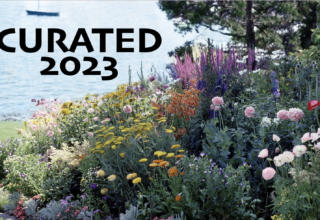
All too frequently, much of what is said in meetings is basic, “pro forma” stuff. You put on your “I am in a meeting” thinking cap and your “I am in a meeting” face and you pretty much say what you would generally say; even pretty much what anyone in your position has said, says, and will say in most meetings past, present, and future. Maybe that’s why at least one research study found that 85% of all meetings are held, pretty much, for the express purpose of holding the next meeting.
If you’re good with that, you would probably not have bought, or been reading, this book. If you want a way to stop maneuvering the endless treadmill and if you want to clear your schedule of pointless time-wasting and purposeless engagements, then you’ll find this section valuable and useful.
Your ticket out of the terminal of mediocrity and off the energy drain has a name. It is the discipline of Thinking Out Loud. Thinking out loud. The discipline is hearing and refining your ideas and thoughts even as you articulate them.
We said earlier that no unexamined idea ends up as one of the seven significant facts or propositions or COP’s, or strategies, or executions. Here’s how that happens. As you say something (or as you listen to someone else say something) repeat it with your own inner voice. See the words take shape inside your mind, not just on the flipchart.
Listen to every word and take the time to contemplate how every word in a phrase or a sentence relates to every other word in that. Practice Thinking Out Loud visually. Practice Thinking Out Loud aurally. Thinking Out loud is one of the hallmarks of people we call geniuses. They aren’t babbling to themselves. They are thinking out loud because it makes understanding that much easier.
Probably 90% of the pictures you’ve seen of Albert Einstein has a chalkboard in the background. That’s Thinking Out Loud. If Einstein needed a chalkboard to make sense of his thinking, how much more so for the rest of us mere intellectual mortals? TOL is the platform beneath Socratic Method. Either I question myself about what I’m saying or someone else questions me immediately after I have said it.
If you don’t mind having people mistake you for someone who’s babbling to themselves, TOL is a highly productive habit to get into. Here’s the simple arithmetic: If, instead of popping off a stream of things in which you are little invested, you take the time to weigh the components of your idea by repeating it multiple times until you’ve actually figured it out; which is likely to be more productive.
One final word on The Discipline. we have participated, and led, innumerable so-called “ideation sessions” in which the big idea is to plaster the walls with ideas on the assumption that quantity will lead to quality.
We, on the other hand, believe that every idea sucks up a bit of the intellectual energy in the room. The more ideas, the less energy any one of them can have. You end up with a roomful of thinking in which a few brilliant ideas lie somewhere in a huge pile of uninteresting ones. A lesser number of ideas, fully examined and well-articulated set the stage for genius.
Besides, it’s so much easier to see the connections, the wholeness, the oneness of a few great ideas than it is to figure out the endlessly convoluted dotted lines between dozens or even hundreds of them. That’s the other reason for insisting on neither more nor less than seven significant facts and seven executions.
It is the same with having neither more than three nor less than three propositions and strategies. Most importantly, that’s why there needs to be only one Central Operating Principle. And there you have it. The story, art, science, and practice of Thinking Whole. Go out there and create the future YOU deserve, with all the genius of which you are fully capable.
Download Article 1K Club
















